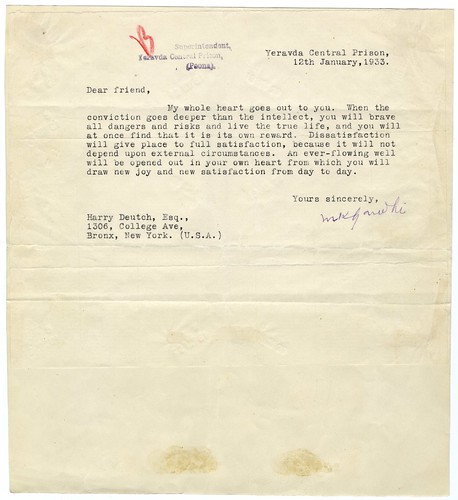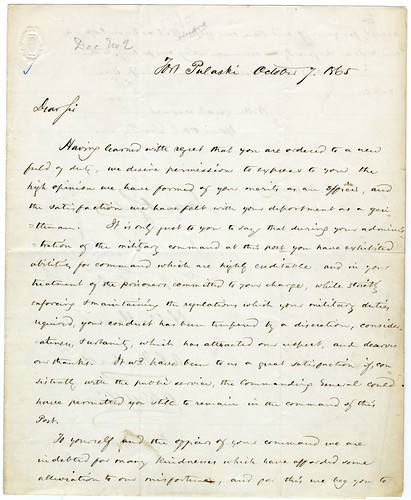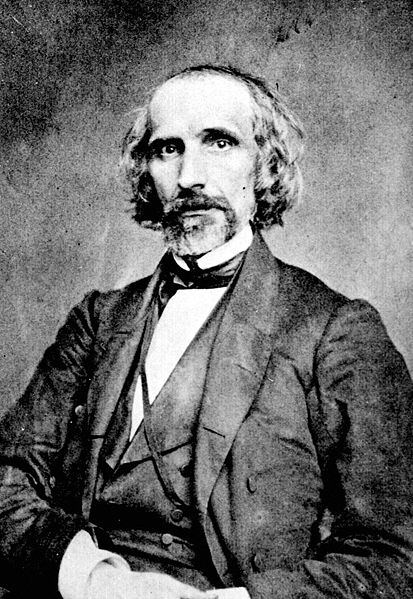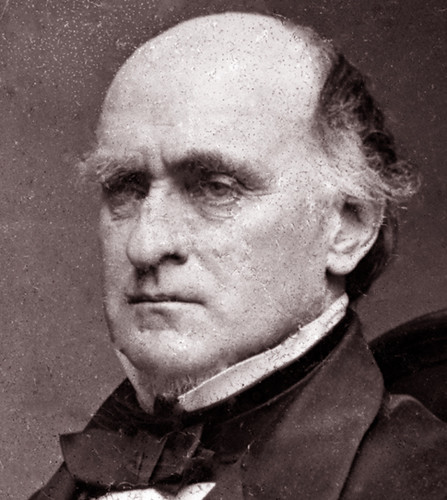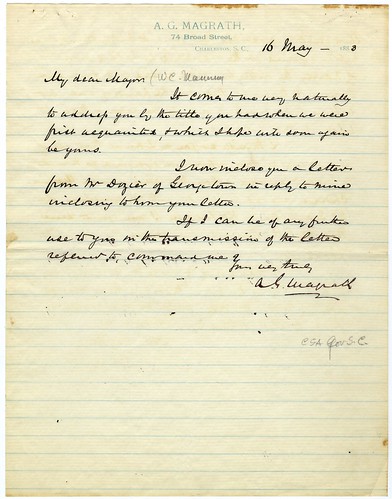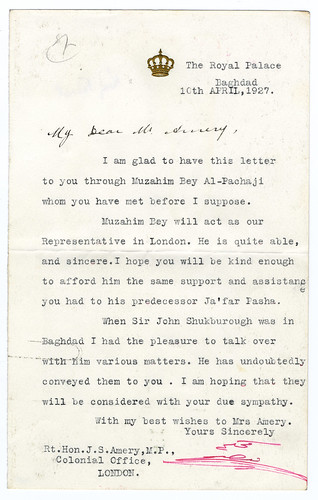The most common thread in McLaws’ letters is the criticism of officers, both Union and Confederate. However, three prominent instances of discord between officers are alluded to as potential game-changers. First, the disobedience of General William B. Franklin to General Ambrose Burnside during the Maryland Campaign caused, McLaws argues, the failure of the Union effort at Fredericksburg and Sharpsburg. Second, the ambition of General Daniel Sickles caused him to be wholly unreliable and even dangerous. And third, the enmity between General James Longstreet and McLaws is expounded by McLaws himself. McLaws is able to speak with confidence about each Sickles, Longstreet, and Franklin, because he fought either with or against them on numerous occasions during the war, and graduated from West Point with the two latter.


Pictured at left: William B. Franklin
William Franklin: “Unsafe to Rely on in Great Enterprise”
McLaws fought Franklin in five battles: The Seven Days battles in June 1862, Harpers Ferry in September 1862, Antietam (or Sharpsburg, as McLaws refers to it) in September 1862, Fredericksburg in December 1862, and Chancellorsville in April 1863. Franklin graduated from West Point one year after McLaws, first in his class, and McLaws esteems Franklin as a “gentleman of great ability and of high character.”1 However, McLaws is critical of Franklin’s hesitancy, and on numerous occasions points out his inability to risk much in battle. Consequently, Franklin nearly always kept large numbers of his forces in reserve, when it was the policy of the Confederates to engage as many troops as possible, and at Harpers Ferry and Sharpsburg Franklin was overrun by forces that outnumbered his when success may have been possible had he engaged his reserve forces.
Generally, the historical perspective of General Burnside’s failure at Fredericksburg is attributed to Burnside himself. The 12,600 men that were lost on his watch at Marye’s Height tainted his reputation among his fellow generals, and even President Lincoln himself began to look into Burnside. 2 When Burnside complained to the Conduct of War Committee in February of 1863 that Franklin’s “lack of...strict adherence” 3 to his orders resulted in the Union defeat, Franklin refuted this claim, arguing that Burnside was trying to salvage his reputation through shameless scapegoating. In a reply to the War Committee of Congress in May, Franklin declared that he “will prove by documentary evidence from Gen. Burnside’s hand that his plan, as given to the Committee, was not the plan on which he conducted the operations of that battle.”4
 Yet while historians tend to side with Franklin, McLaws disagrees. If Franklin had chosen to engage all of his troops instead of keeping some in reserve, he argues, Lee would have been forced to retreat. Franklin had 60,000 men in his command and was ordered by Burnside to launch an attack on “the high ground,” Prospect Hill, but sent only his smallest division, 4500 under the command of Meade, to fight the 7 active divisions of Jackson, who had 3 reserve divisions stationed behind. Burnside, who was engaged at Marye’s Height, learned that his left flank had not been taken by Franklin and ordered him to send in more troops, but Franklin did not, seeing the risk to be too large. Meade’s initial success was not reinforced and consequently the Union forces had to withdraw.
Yet while historians tend to side with Franklin, McLaws disagrees. If Franklin had chosen to engage all of his troops instead of keeping some in reserve, he argues, Lee would have been forced to retreat. Franklin had 60,000 men in his command and was ordered by Burnside to launch an attack on “the high ground,” Prospect Hill, but sent only his smallest division, 4500 under the command of Meade, to fight the 7 active divisions of Jackson, who had 3 reserve divisions stationed behind. Burnside, who was engaged at Marye’s Height, learned that his left flank had not been taken by Franklin and ordered him to send in more troops, but Franklin did not, seeing the risk to be too large. Meade’s initial success was not reinforced and consequently the Union forces had to withdraw.Burnside and Franklin each provided accounts of the strategies employed and orders given. Historians agree that Burnside’s orders were “vague” enough to confuse most generals, for which Franklin should not be blamed, and that if Franklin made a mistake, it was writing a letter to General William Smith complaining that Burnside was a poor leader and that Franklin’s own performance would have been better under a more competent general. 5 The letter, unfortunately, made its way to Burnside’s lap, and Burnside immediately began campaigning for Franklin’s reassignment. Despite McLaws’s claim that Franklin was at fault at Fredericksburg, the next year showed that Burnside had a penchant for delegating blame. In January of 1863, Burnside offered an ultimatum to President Lincoln: court-martial the generals who had been critical of his performance, or he’d resign. Lincoln accepted his resignation and, in Burnside’s place, promoted Joseph Hooker, his chief critic.


Left: Daniel Sickles
Right: George Meade
Daniel Sickles: “Merit was his First Consideration”
Sickles, unlike Franklin, was unafraid of risk. Sickles was known for his combative nature and unwillingness to take advice or consider an alternate point of view. He often found himself in precarious situations because of his inability to follow orders, particularly in the battle of Chancellorsville and the battle of Gettysburg. In each of these battles, Sickles advanced his III Corps away from the main body of the Army of the Potomac to form salients, despite his orders not to.

At Gettysburg, Maj. Gen. Meade ordered Sickles to position his III Corps along the lower section of Cemetery Ridge. Sickles was unsatisfied with these orders because the position was low and wooded and would be hard to defend. Sickles was ordered to place men at Little Round Top, but he refused, claiming he did not have enough men or enough information about the location. Sickles thought an area of higher ground along the Emmitsburg Road would be a better location for his troops. Meade refused to give the orders, but he sent Brig. Gen. Henry Hunt to survey the location. Hunt believed the location near Emmitsburg Road (Peach Orchard) was a better position than Sickle’s location on Cemetery Ridge, but he did not recommend that Meade give the order to occupy Peach Orchard because the position would expose Sickle’s corps on two sides and would increase the ground the corps would have to defend, as well as leave Hancock’s left flank unprotected. Unsatisfied, Sickles ordered his men to advance to Emmitsburg Road despite his orders to stay put. By the time Meade confronted Sickles, it was too late to retreat back to the original line. 6 Sickles’ corps was attacked on all sides by the Confederate army, including a division of Longstreet’s corps commanded by McLaws, which McLaws refers to in his letter. Sickles was hit in the right leg with shrapnel, which resulted in amputation - the incident probably saved him from being court-martialed. Meade was willing to claim that Sickles had misunderstood his orders, but Sickles claimed that there had been no misunderstanding. He defended his decision to occupy Peach Orchard until his dying day and insisted that he made no error.7
Apparently, Sickles published an account of Gettysburg in the New York Herald on March 12, 1864 under the name Historicus. The account emphasized Sickles’ foresight and heroism and highlighted Meade’s incompetence. Basically, the account claimed that Sickles won the Battle of Gettysburg. 8
McLaws interpreted Sickles’ defiance as an act of glory, writing in one of his letters, “Gen Sickles, who would done [sic] anything to bring fame to Sickles. Merit was his first consideration.” 9 This claim is perhaps evident in Sickles’ leave from the army after his defeat at Chancellorsville, which weighed heavily on him even after he returned to the army to fight in the Battle of Gettysburg.10 On the contrary, many people praised Sickles as a flamboyant and enthusiastic leader because of his courage and foresight in battle.11

 Left: Lafayette McLaws
Left: Lafayette McLawsRight: James Longstreet
James Longstreet: “Incapable of Conducting a Campaign from the Evolutions of his Own Brain”
While history has largely overlooked over McLaws, he is still remembered in conjunction with his commanding general, James Longstreet. In A Soldier’s General, the posthumously published collection of McLaws’ letters, the first citation is a criticism of Longstreet. McLaws wrote to his wife that “the whole plan of battle [was] a very bad one. Genl Longstreet is to blame for not reconnoitering the ground and for persisting in ordering the assault when his errors were discovered....I consider him a humbug, a man of small capacity, very obstinate, not at all chivalrous, and totally selfish. If I can it is my intention to get away from his command.”12 Although Longstreet and McLaws were childhood friends in Augusta and classmates at West Point, their camaraderie in the Confederate States Army was highly precarious. McLaws made no attempts to disguise his opinion of Longstreet’s leadership. Historians agree that Longstreet was an unfair critic of his officers: “Habits of criticism lead one insensibly into glaring inconsistencies. Longstreet, habitual critic of everyone but himself, did not realize this, but the fact becomes apparent that he was unfair in his judgment and wholly inconsistent.”13
McLaws fought alongside Longstreet in every major battle in which he was engaged, including the Battle of Seven Days, Harpers Ferry, Antietam, Fredericksburg, Chancellorsville, Gettysburg, and Fort Sanders. At Fort Sanders, a combination of Longstreet’s delay and McLaws’ hesitancy to attack at night resulted in the loss of the fort with 813 Confederate casualties and only 13 Union casualties, a bitter humiliation for Longstreet. He charged McLaws with three counts of neglect of duty, citing “a want of confidence in the efforts and plans which the commanding general has thought proper to adopt,” and recommended his demotion, being “apprehensive that this feeling will extend more of less to the troops under your command.”14 While McLaws is clearly bitter about Longstreet, however, his judgments about Longstreet appear to be consistent with the general historical perspective. Eckenrode and Conrad write that “it would have been singular if so intelligent an officer had felt any confidence in the blundering movement by which nearly one half of the army was detached at a critical moment and sent off on a wild-goose chase.”15 Almost immediately, McLaws was pardoned by President Jefferson Davis.
In his letters, McLaws is openly critical of Longstreet. In February of 1888 he wrote that Longstreet had thoughtlessly published a confidential letter that McLaws had written, resulting in the spite of General Long. McLaws asserted that although Longstreet was a “brave man,” his “obstinacy and self-assertion placed him far beyond his merits...he was incapable of conducting a campaign from the evolutions of his own brain and his jealousy of advice was so great that really at times it seemed as if he preferred that of the enemy rather than to take it from one of his subordinates.”16 He cites the Campaign against Knoxville, of which the Fort Sanders attack was a part, as an example of Longstreet’s failure to strategize successfully, going so far as to say that “he could not have ordered movements more to the advantage of the opposing forces, if he had acted only in conformity of the orders of Burnside and Gen Grant.”17
It is interesting that McLaws was so critical of the errors not only on the Confederate side, but the Union side as well. It is implied in many of his critical remarks that Confederate victory was achieved in certain battles due in large part to the misdirection of a few men, and that had they followed the orders of their superiors, Union victory would have likely been secured and Lee, among others, would have “met great disaster” as a result. 18 McLaws stands out from many of his Confederate comrades in his departure from the “Lost Cause” ideology that painted the leaders of the Confederacy as all but infallible, defeated by the ignoble Union not by triumph of will or validity of cause, but through mere strength of arms. It was through the embodiment of this ideology that Robert E. Lee was glorified and raised up onto the pedestal on which, to some, he remains today. And yet McLaws is conscientious--critical, even--in his review of Lee. His writing contains careful analysis of military strategy on each side of the battles, pointing out the flaws that foiled both Confederate and Union plans. For a man who was so deeply involved in the war, McLaws’s writing appears to be surprisingly, and refreshingly, objective.
-Stephanie Walrath '12 and Hannah Jarrett '12
(Transcriptions of the Lafayette McLaws Papers are available here.
A general description of the collection is here.
Images of the letters are here.)
Notes
1 “Lafayette McLaws to Isaac Pennypacker, August 30, 1889,” Lafayette McLaws Letters, The Littlejohn Collection at Wofford College.
2 Clint Johnson, Civil War Blunder: Amusing Incidents of the War. (Winston-Salem: John F Blair Publisher, 1997), 133.
3 George C. Rable, Fredericksburg! Fredericksburg! (Chapel Hill: The University of North Carolina Press, 2002), 507.
4 http://www.nytimes.com/1863/02/06/news/gen-franklin-s-departure-his-opposition-recent-movement-his-relations-gen.html
5 Clint Johnson, Civil War Blunder: Amusing Incidents of the War. (Winston-Salem: John F Blair Publisher, 1997), 136.
6 Bradley M. Gottfried, Brigades of Gettysburg: The Union and Confederate Brigades at the Battle of Gettysburg. (Cambridge: Da Capo Press, 2002), 186.
7 Thomas Keneally. American Scoundrel: The Life of the Notorious Civil War General Dan Sickles. (New York: The Serpentine Publishing Co., 2002), 287-288.
8 Robert P. Broadwater, Gettysburg as the Generals Remembered It: Postwar Perspectives of Ten Commanders. (Jefferson: MacFarland and Company, Inc. Publishers, 2010), 54.
9 “Lafayette McLaws to Isaac Pennypacker, August 30, 1889,” Lafayette McLaws Letters, The Littlejohn Collection at Wofford College.
10 Gottfried, 185.
11 Ezra J. Warner. Generals in Blue: Lives of the Union Commanders. (Baton Rouge: Louisiana State University Press, 1981), 446.
12 Lafayette McLaws and John C. Oeffinger, A Soldier’s General: The Civil War Letters of General Lafayette McLaws (Chapel Hill: The University of North Carolina Press, 2002), 2
13 H. J. Eckenrode and Bryan Conrad, James Longstreet: Lee’s Warhorse (Chapel Hill: The University of North Carolina press, 1986), 171
14 H. J. Eckenrode and Bryan Conrad, James Longstreet: Lee’s Warhorse (Chapel Hill: The University of North Carolina press, 1986), 277
15 Ibid, 277.
16 “Lafayette McLaws to Isaac Pennypacker, August 28, 1888,” Lafayette McLaws Letters, The Littlejohn Collection at Wofford College.
17 Ibid.
18 “Lafayette McLaws to Isaac Pennypacker, August 30, 1889,” Lafayette McLaws Letters, The Littlejohn Collection at Wofford College.

